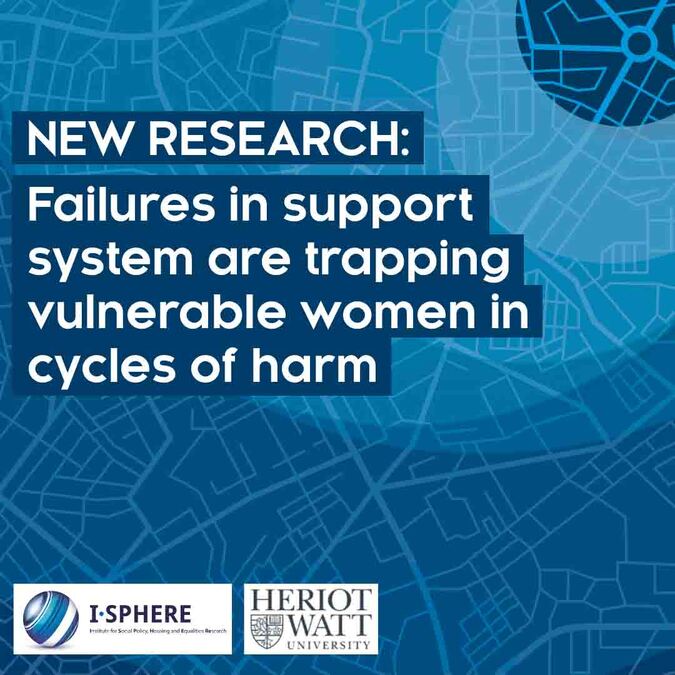Published:

A new report, authored by Heriot-Watt University, found that in England the highest levels of homelessness risks are experienced by people from Black and minoritised ethnic backgrounds.
Black people are three and a half times as likely to experience statutory homelessness as White British people.
The report, conducted in partnership with Race on the Agenda and funded by Oak Foundation, found that experience of discrimination, harassment or abuse on the grounds of race or ethnicity in housing, or in other aspects of life, appears to be associated with elevated risks of homelessness.
Amongst Black people with experience of homelessness, one third (32%) report discrimination from a social or private landlord.
Homelessness and Black and Minoritised Ethnic Communities in the UK: A Statistical Report on the State of the Nation is the first report in a three-year knowledge and capacity building programme. It aims to support a fundamental step change in the UK evidence base on homelessness amongst people from Black and minoritised ethnic communities.
The research was delivered with input from race and equalities organisations, national housing and homelessness charities, and poverty experts. Its technical work used sources from the UK Data Service, Government Statistical services and ONS.
Professor Glen Bramley, Heriot-Watt University, said: “This report reveals the shocking extent of disparities in homelessness risks experienced between some minoritised ethnic communities and White people living in the UK today. What is particularly distressing is the apparent link between homelessness and race discrimination. This needs further investigation, and we are committed to this ongoing work to better inform priorities, tools and levers for intervention.”
Ali Ahmed from Race on the Agenda (ROTA) said: “The findings of this report are harrowing but are sadly not unexpected. As an organisation which works with marginalised communities across the country, we are seeing the impact of these findings every day as Black and minoritised ethnic communities remain overrepresented in the most deprived neighbourhoods and households nationally. The findings of this report are important and timely, adding essential statistical evidence of discrimination and underpinning ROTA's continued call for urgent policy change from central and devolved governments.”
Dr Halima Begum, CEO of the Runnymede Trust said: “This report makes for extremely difficult reading, but sadly its findings aren't surprising. What this research makes clear is that the heightened risk of homelessness faced by certain ethnic minority communities cannot be fully explained just in socio-economic or demographic terms alone but are in fact down to a person's race and ethnicity when those other factors remain a constant across all those experiencing homelessness.
“As with homelessness, racism is structural and is woven into the processes and practices of systems and institutions which should act as the safety net preventing people from becoming homelessness to begin with, and then supporting them to escape the cycle of exclusion once they become homeless. The safety nets are not working for minority groups.”
Matt Downie, Crisis Chief Executive, said: “This report should shame us as a country. Every day we see in our services that black, Asian and minoritised ethnic communities are experiencing higher rates of homelessness, but this research puts beyond doubt the reality and scale of the problem. It is horrifying that people are being exposed to harassment and abuse in the pursuit of trying to find somewhere safe and secure to live. The homelessness sector, national and local government, and wider society must acknowledge and root out these injustices and advocate for long term systemic solutions if we're to ultimately end homelessness for good.”
Polly Neate, chief executive, Shelter said: "Racial inequality and discrimination are hard-wired into our housing system. This report shows, once again, that the housing emergency disproportionately impacts Black and minoritised ethnic communities. The direct link between homelessness and racial discrimination cannot be ignored and more has to be done. Heriot-Watt's work is helping to lead the way. Homelessness is a structural problem that needs major structural solutions. Any commitment to ending homelessness and creating a fair and secure housing system, must take into account the clear role that the legacy of racial discrimination has played and how it continues to plague society."
The academic team, with input from the wider advisory expert group, will now deliver a more focussed exploration of the experiences of specific ethnic groups and the contrasts between London and other parts of the country.